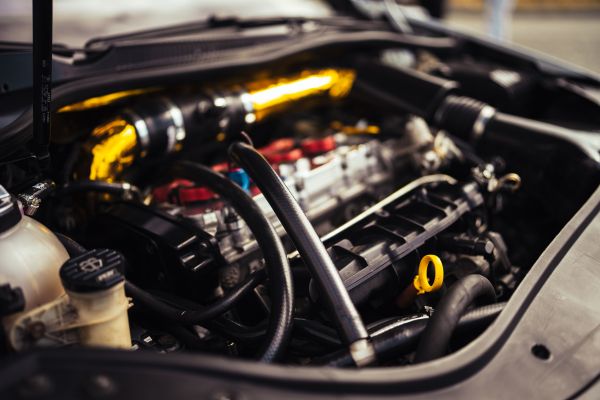When it comes to EV maintenance vs gas cars, a lot of people are curious about what actually goes into owning one over the other. We’ve all heard the buzz: electric vehicles are “low maintenance” and “cheaper to run.” But let’s be real—owning a car is never totally hassle-free, no matter the power source. So, what really sets EV maintenance apart from traditional gas-powered cars? Let’s dig in and break it down in a way that actually makes sense for everyday drivers.
The Basics of EV Maintenance vs Gas Cars
The biggest difference between EVs and gas cars comes down to complexity. Gas cars are built around engines with hundreds of moving parts. Belts, pumps, pistons, valves—you name it. Electric vehicles, on the other hand, run on electric motors that have far fewer moving pieces. That simplicity is where a lot of the maintenance savings come from.
With a gas car, you’re scheduling oil changes, transmission flushes, spark plug replacements, and emissions checks on a regular basis. EVs don’t need any of that. They still have systems that require care—like tires, brakes, and battery cooling—but the maintenance list is noticeably shorter.
Oil Changes vs No Oil Changes
Here’s one of the easiest wins for EV drivers. Since electric motors don’t use oil, there’s no need for oil changes. That alone saves hundreds of dollars over a few years. Gas car owners know the drill—every 5,000 miles or so, it’s another trip to the mechanic. EV owners can skip that step entirely.
But don’t think EVs are “maintenance-free.” They still need fluid checks for things like windshield washer fluid and sometimes coolant for the battery system. It’s just not as constant or costly as what you’d see with a combustion engine.
Brakes and Regenerative Braking
One area where EVs really shine is brakes. Gas cars rely heavily on traditional braking systems, which wear down pads and rotors relatively quickly. EVs, however, use regenerative braking. That means when you slow down, the motor helps absorb energy and recharge the battery, reducing wear on the brake system.
The result? Brake pads and rotors last much longer on EVs. Gas cars might need replacements every 30,000 to 40,000 miles, while EVs can stretch that significantly further. Over time, that translates to serious savings.
Tires and Suspension
Now, here’s the thing: EVs are heavier than gas cars because of those big batteries. That extra weight puts more stress on tires and suspension components. So, while you might save money on brakes and oil, you may find yourself replacing tires a bit more often with an EV.
Gas cars don’t typically have that problem, but then again, fuel costs often outweigh any savings you’d get from longer tire life. It’s a bit of a trade-off.
Battery Care vs Engine Care
This is probably the biggest question people ask about EV maintenance vs gas cars: what about the battery? EV batteries are expensive, no doubt. Replacing one can cost several thousand dollars, and that freaks some buyers out.
The good news is that most EV batteries are designed to last well over 100,000 miles, with warranties often covering 8 to 10 years. Compare that to a gas engine, which can start racking up repair bills much sooner—head gaskets, timing belts, alternators, all the fun stuff.
So while a gas car spreads out its costs in smaller, frequent repairs, an EV carries the risk of one big expense later on. But with proper care (like not always charging to 100% and avoiding extreme heat), EV batteries can go the distance without major issues.
Software vs Mechanical Repairs
Another twist with EVs is that a lot of their “maintenance” isn’t mechanical—it’s software. Automakers like Tesla push updates that improve performance, fix bugs, and even add new features. You don’t see that with gas cars unless you’re counting recalls.
The flip side? EVs are more dependent on dealerships or specialized shops. If your EV needs something beyond a tire rotation, you might not be able to take it to just any corner garage. Gas cars, on the other hand, can usually be fixed by any mechanic with a wrench and a bit of know-how.
Fuel vs Charging Costs
Let’s not forget the day-to-day running costs. With a gas car, fuel is one of your biggest ongoing expenses. EVs dodge that with home charging, which is usually cheaper than filling up at the pump. Sure, electricity rates vary, but even at peak prices, charging tends to be friendlier on your wallet than gasoline.
Plus, fewer maintenance visits mean fewer surprise bills. Over a 5-year period, studies show EVs often come out thousands of dollars cheaper in total ownership costs compared to gas cars.
The Learning Curve
It’s worth mentioning the mindset shift that comes with EV ownership. Gas car owners are used to certain rituals: oil changes, emissions testing, muffler checks. EV owners adjust to new ones: watching battery health, learning how to maximize range, planning road trips around charging stations.
Neither system is perfect—it’s just different. If you’re comfortable with the idea of charging and digital diagnostics, EVs feel futuristic and straightforward. If you prefer the familiarity of mechanics and fuel stations on every corner, gas cars still make sense.
So, Which is Cheaper to Maintain?
If we’re talking averages, EVs are cheaper to maintain. The absence of oil changes, less brake wear, and fewer engine-related breakdowns add up to noticeable savings. Gas cars, while cheaper upfront, will keep nibbling at your wallet with ongoing upkeep.
That said, EVs carry higher risk in certain areas—mainly battery replacement and specialized repair costs. For most drivers, though, the math still leans in favor of EVs when it comes to long-term maintenance.
Wrapping It Up
At the end of the day, EV maintenance vs gas cars isn’t just about dollars and cents—it’s about lifestyle and comfort. EVs simplify a lot of the traditional headaches of car ownership, though they introduce new habits and risks. Gas cars remain familiar, accessible, and easy to fix, but they’ll keep you tied to more frequent maintenance and rising fuel costs.
The thing is, neither choice is “wrong.” It comes down to how you drive, what you value, and what kind of experience you want behind the wheel. But if saving time and money on maintenance sounds good—and you’re cool with the EV learning curve—electric might just be the smarter move for the future.



